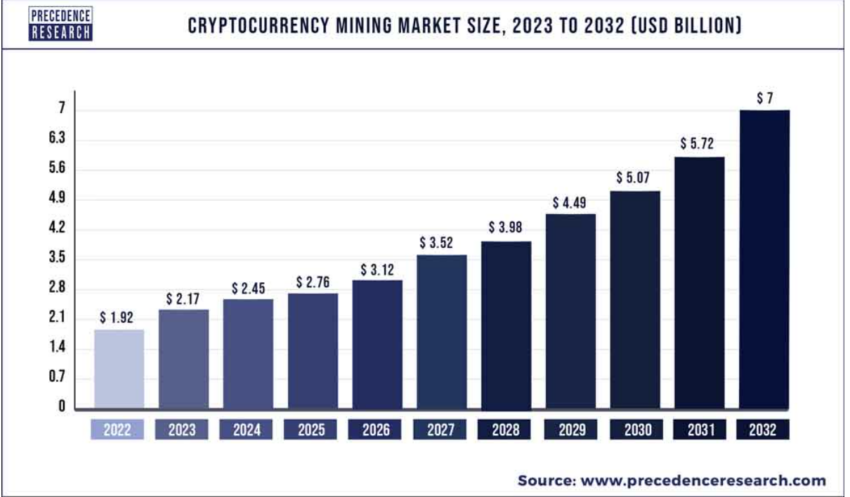President Joe Biden’s administration is taking a firm stance on environmental sustainability and digital asset regulation. The US Department of the Treasury has proposed a 30% tax on electricity consumption by crypto mining firms in the Fiscal Year 2025 Revenue Proposals.
This move aims to confront the significant environmental impacts caused by the energy-intensive process of crypto mining.
Why the US Department of Treasury Proposed a 30% Mining Tax?
The proposal is grounded in the belief that the rising energy demand of the crypto-mining industry exacerbates environmental degradation. Moreover, it raises environmental justice issues and threatens the stability of local utilities and communities.
“An excise tax on electricity usage by digital asset miners could reduce mining activity along with its associated environmental impacts and other harms,” the proposal stated.
Crypto mining firms, under this new tax scheme, would need to report both the quantity and cost of electricity they consume. This includes companies that rely on off-grid power production. The tax is set to be introduced gradually over three years, starting at 10% and reaching 30% by the third year, effective from January 1, 2025.
Read more: How To Build a Mining Rig: A Step-by-Step Guide
However, the proposal has ignited controversy. Senator Cynthia Lummis has criticized it, suggesting it could stifle the industry’s growth in the United States. Meanwhile, Pierre Rochard from Riot Platform argues that the tax aims to restrain Bitcoin and favor the development of a central bank digital currency (CBDC).
“All of the reasons they provide are pretextual, their real reason is that they want to suppress Bitcoin and launch a CBDC,” Rochard said.

This is not the first attempt by the Biden administration to target the crypto mining sector. Previously, in May 2023, the government proposed a Digital Asset Mining Energy (DAME) excise tax, citing environmental concerns.
In contrast, Donald Trump, expressing a different perspective, has shown a more open approach toward crypto. Notably, his experience with Trump-branded luxury sneakers, which saw a significant number of transactions in crypto, has influenced his view. Trump’s remarks indicate a shift from his previous preference for traditional currencies, highlighting the adaptability required in today’s financial technology arena.
Read more: The Ultimate US Crypto Tax Guide for 2024
Moreover, Trump has opposed CBDCs, promising never to allow their creation under his presidency. This stance, coupled with his potential return to office, adds an interesting dynamic to the ongoing debate about the future of digital currencies in the US
 beincrypto.com
beincrypto.com